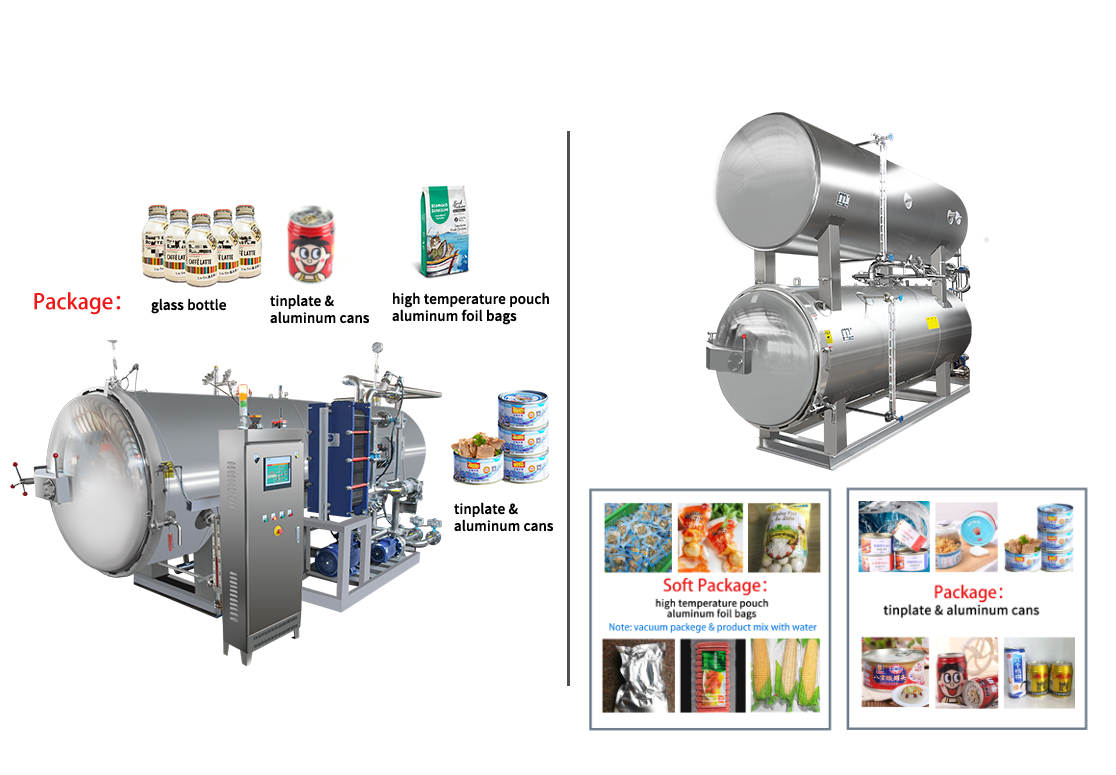

categories
High-temperature sterilization (e.g., pasteurization: 72–85°C/161–185°F; UHT: 135–150°C/275–302°F) is essential for safety, quality, and shelf life in beverages. Here’s why it’s indispensable:
Raw ingredients (water, fruits, dairy, botanicals) carry pathogens (Salmonella, E. coli, Listeria, viruses).
Heat kills microorganisms, preventing foodborne illnesses (e.g., fruit juice-linked E. coli outbreaks).
Critical for vulnerable groups: Children, elderly, or immunocompromised consumers
2. Spoilage Microbe Elimination
Yeasts, molds, and acid-tolerant bacteria (e.g., Alicyclobacillus) cause:
▶️ Gas production (swollen cans/bottles)
▶️ Off-flavors, cloudiness, sedimentation
▶️ Visible mold growth
Sterilization extends shelf life from days to months/years without preservatives.

Natural enzymes (pectinase in juices, peroxidase in plant-based drinks) cause:
▶️ Separation, texture degradation
▶️ Nutrient loss (e.g., vitamin C oxidation)
▶️ Color/flavor changes
Heat denatures enzymes, preserving sensory and nutritional quality.
Low-acid beverages (dairy, tea, protein drinks, pH >4.6):
▶️ Prone to Clostridium botulinum (deadly neurotoxin).
▶️ Require UHT/retort sterilization (≥121°C/250°F).
Acidic beverages (juices, sodas, pH <4.6):
▶️ Lower temperature pasteurization suffices (e.g., 85°C for 30 sec).
FDA/EFSA mandates: ≤1 yeast/mold per 10ml in juices; zero pathogens.
Global standards (Codex, ISO) require validated kill steps.
Avoids recalls (e.g., Cryptosporidium in apple juice recalls).
Dairy & Plant Milks: UHT sterilization enables ambient shelf life (6–12 months).
Juices/Nectars: Pasteurization prevents fermentation and spoilage.
RTD Teas/Coffees: Eliminates Bacillus spores causing rancidity.
Infant Formula: Sterilization is non-negotiable for safety.
Are you interested in food and beverage high temperature sterilization?Feel free to contact me.This is Jane.Tel/whatsapp/wechat:+8615689806788

Email: zongon@zongon.com
ADD: Xinxing Town Station, Weifang, Shandong, China
 English
English 中文简体
中文简体